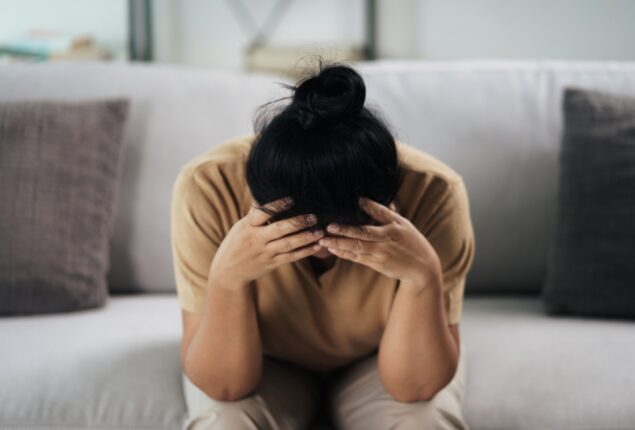
An anxiety disorder is a type of mental health condition
The nation of millennials being exhausted to the point of burnout isn’t anything new.
Between the stress of social media, the gig economy, and living in a world that feels increasingly more uncertain, it’s a little surprise that we are exhausted. Not to mention, our mental well-being is suffering.
Mental health is about how people think, feel and act. Mental health professionals can help people with depression, anxiety, bipolar disorder, addiction, and other conditions that affect how they think, feel, and behave.
An anxiety disorder is a type of mental health condition. If you have any anxiety disorder, you may relate to certain things and situations with fear and dread. You may also experience physical signs of anxiety, such as heart pounding and sweating.
A mix of genetic and environmental factors can raise a person’s risk for developing anxiety disorders.
Certain personality traits such as shyness or behavioral inhibition, feeling uncomfortable with and avoiding unfamiliar people, situations, or environments.
It can also result from stressful or traumatic events in early childhood, family history of anxiety or other mental conditions; and certain physical conditions including thyroid problems and heart arrhythmias (unusual heart rhythms).
Types of Anxiety
There are several types of anxiety.
- Disorder of generalized anxiety (GAD).
- Anxiety disorder
- Phobias
- Separation phobia
These include obsessive-compulsive disorder and post-traumatic stress disorder.. Anxiety disorders have characteristics in common with other mental health diseases.
How can you best cope with anxiety and mental disorder?
You can take a number of actions to manage the symptoms of an anxiety illness. The following techniques can also help your treatment be more successful:
Explore stress management: Learn how to handle stress by exploring various techniques, such as meditation.
Join a support group: There are both live and online groups available. They urge those who suffer from anxiety disorders to talk about their struggles and coping mechanisms.
Gain knowledge: To feel more in control, find out what kind of anxiety issue you have. Give your family and friends information about your condition so they can support you.
Limit or avoid caffeine: Caffeine should be consumed in moderation or avoided altogether because it can exacerbate the symptoms of anxiety in many people.
Speak with a healthcare professional: Your healthcare provider is a caring partner. Contact your provider if you think your treatment isn’t working or if you have any questions about your medication to proceed in the most effective way.
The state of one’s cognitive, behavioral, and emotional functioning is referred to as mental health. It influences how people interact with others, respond to stressors, and make decisions.
The WHO states that achieving optimal mental health involves more than simply being free of mental health issues.
It is the capacity to control one’s current circumstances and stresses while preserving overall well-being and contentment. Stress, despair, and anxiety are just a few examples of factors that can harm mental health and interfere with a person’s routine.
Also Read
Read More News On
Catch all the Health News, Breaking News Event and Latest News Updates on The BOL News
Download The BOL News App to get the Daily News Update & Follow us on Google News.




